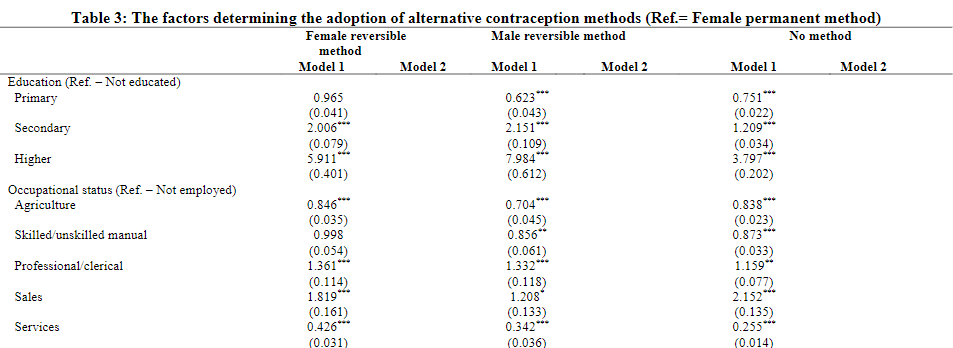Gender gap in the use of contraception: Evidence from India
DOI:
https://doi.org/10.54945/preserve.5Keywords:
Gender gap, India, National Family Health Survey, ContraceptionAbstract
Given the background of disproportionate burden of contraception being borne by women, this paper aims to analyse the role of different factors in determining the use of contraception per se and the choice of method of contraception, among married couples in India. We specifically focus on the role of gender in affecting these contraception choices. The analysis is based on rounds 3 and 4 of nationally representative NFHS dataset, using multinomial logistic framework. Our main results suggest that couples in which women have relatively higher bargaining power, as indicated by education, employment, and participation in household decisions, prefer to choose reversible methods of contraception over permanent methods. More specifically, such couples tend to choose male methods of contraception over the female permanent method.


